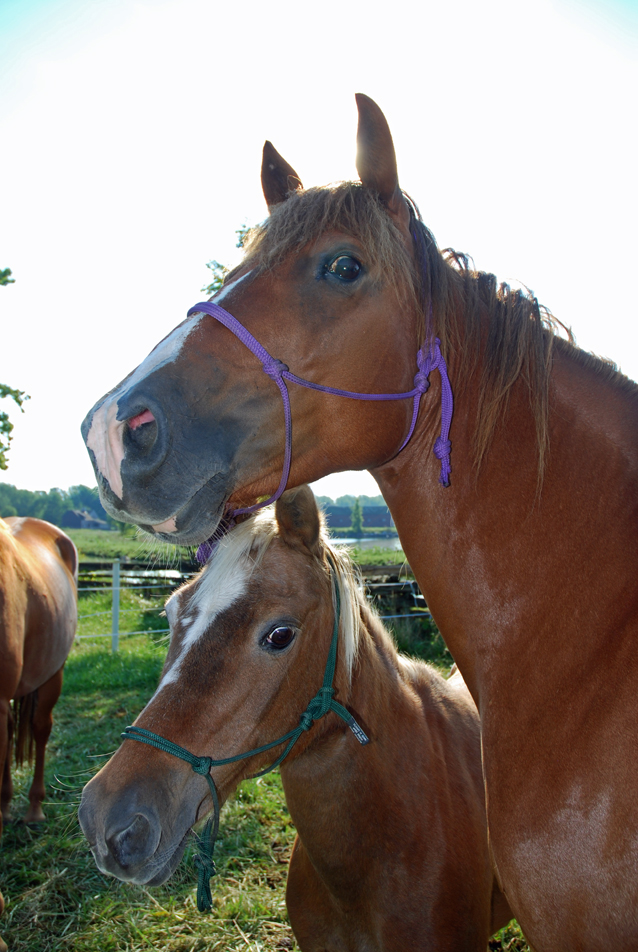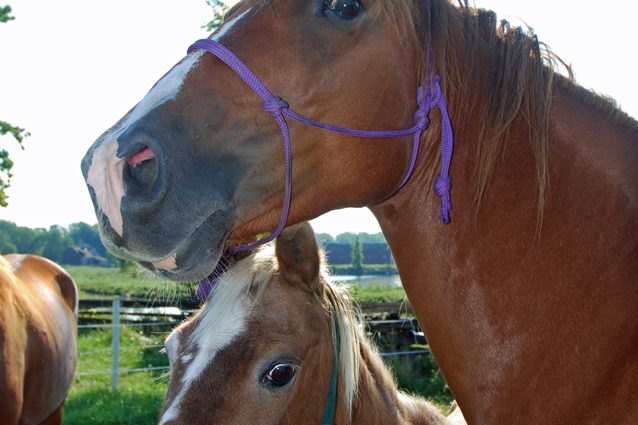
CFN – This Column of “Spirits in Unity” is being published by CFN for the community of Stormont, Dundas & Glengarry. It is an honour to have you as a reader. I welcome any comments, questions or topics you would like me to discuss. I hope you enjoy reading about the wonderful world of horses and the impact that natural horsemanship can have in making it a better world for both horses and humans.
The Attitude of Justice is Effective
At our recent Horse Lovers’ Weekend event at Upper Canada Village, Drogheda Manor’s “Spirits in Unity” show attempted to demonstrate to audiences in a very practical way, the eight principles of horsemanship.
The ‘Attitude of Justice’ was the one chosen for special consideration because it can often be misinterpreted. Through on the field on-line and riding demonstrations and through interactive simulations with the audience I tried to show why this principle is so important in developing a good partnership with horses.
This is the principle I am most excited about but is also the most difficult to put into practice. When dealing with horse it is very easy to be too tough. It is all about being as gentle as possible and yet as firm as necessary, without getting mean or mad.
Recently a lady related to me a story about her encounters with a local horse trainer whom she hired to help her with her horse’s education. She sent her beloved horse to the recommended trainer with the specific instruction that she did not want extreme measures to be used with her horse in her training program.
When checking in a few days into the training, she was horrified to see that her horse had suffered a cut across her nose from the training methods used by the trainer. When confronted the trainer’s reply was “Sometimes you have to do what you have to do in training horses.”
I hear this expression used a lot by horse owners and trainers and it always gives me cause for pause. Even though there is some truth in the statement it is easy to cross over the line of necessary training to cruelty. How do you maintain an attitude of justice? How can you be gentle and still be effective? How do you give the horse the best deal possible?
It is about being as gentle as a 3 year old child, but at the same time not being a sissy either.
Pat Parelli describes it as being “an extreme middle of the roadist”. It is very easy to get on the path of being too soft or being too harsh.
He would describe people in two categories. There is the carrot person and the stick person. The carrot person says just give me some carrots and I will lure the horse into that trailer and the stick person says just give me the stick and “I’ll get him in”.
Whether you are dealing with horses or with humans these attitudes are both wrong.
The Attitude of Justice is easy for people to accept in principle, but can be very confusing in practice. On the practical side, there are two things that you need to have in your mind to apply an attitude of justice.
First, you need to have a good understanding of your horse as a species and as an individual. Secondly you need to recognize what stage you are at in the teaching process. Are you at the first stage, the teaching phase? Are you at the second stage, the controlling phase? Are you at the third stage, the reinforcing phase? Or are you at the fourth stage, the refining stage?
In the first stage, the teaching phase, take as long as it takes for your horse to learn whether it takes two minutes or two days.
But be ready to control your horse without becoming a control freak. Developing trust with your horse is great, but control is best. More trust comes when you can make a game out of your control techniques instead of being forceful and harsh.
To control your horse it is necessary to use phases and to play. The phases begin with suggestion. Do you know the look your mother gave you as a child when she was displeased with you? That’s the suggestion. Do you remember that when you didn’t respond to her intention, she would go to the next phase and ask you to respond? If you still didn’t respond, she would tell you and finally if you still didn’t respond, the promise would come. That promise could take many forms.
Pat Parelli tells of his own experience with his mother and how the wooden paddle hanging on the refrigerator door was that promise. Get the picture?
That final phase is the tricky one. With horses you have only one chance to get it right to be effective. If you have to go there more than once then you are getting into the area of punishment and that doesn’t work very effectively with horses or children for that matter. If what you tried doesn’t work, abandon that method and look for a more effective way of dealing with the situation because you are probably the source of the problem.
With Pat’s Paddle, it soon became unnecessary to go to phase four and just the suggestion was all it took for a correct response. I’d like to ask him sometime how many times his mom had to go to phase four with him.
In the reinforcement phase, it is important to try to make a game of it, make it a fun experience, not a threatening one. Your goal is get your horse to be confident, curious, sensitive and responsive. You can’t get this if you treat him unfairly.
In applying this principle caring horse owners often become tentative for fear of going too far or being too harsh and end up not getting much done. It is important not to become afraid to make mistakes. I make mistakes all the time with my horses. Making mistakes is part of life and part of learning. The remarkable thing is that horses are very forgiving creatures. If you do something wrong a gentle rub and it will all go away or as one of my students says, “Just give them a good snuggle and they will get the idea.”
This topic of attitude of justice is a difficult one to describe and I will come back to it again, but for now just keep it natural. Keep it real.
In our ‘Spirits in Unity’ program we believe in developing a trusting relationship and a true partnership with a horse before even thinking about getting on his back. He probably prefers it that way too.
If you are interested in learning about our Spirits in Unity Tour for 2012 or what other people interested in horse welfare are doing with natural horsemanship in our area you can become a member of The Eastern Ontario Natural Horsemanship Club at www.meetup.com .There is no charge to join.
Whether you are just a horse lover, have dreams of owning a horse someday, or already have one, I hope these columns will give you some insight into the true nature of these magnificent creatures. I hope you will find them both informative and inspirational.
May all your dreams come true,
Garry “Horsetalker” Meek


Excellent information Garry, makes you think, if only we all used the principle of the Attitude of Justice the world would rapidly become a better place, keep up the good work!
Excellent article Garry. One of the best ones!!